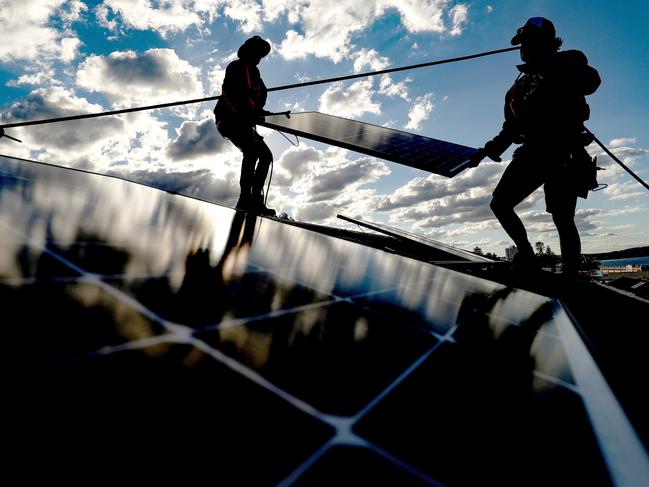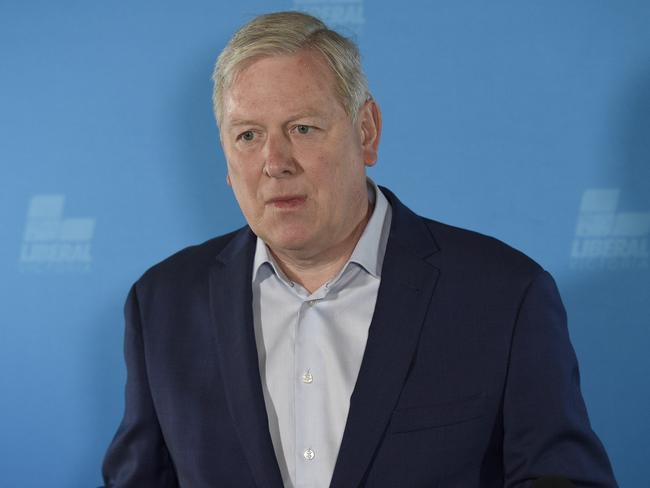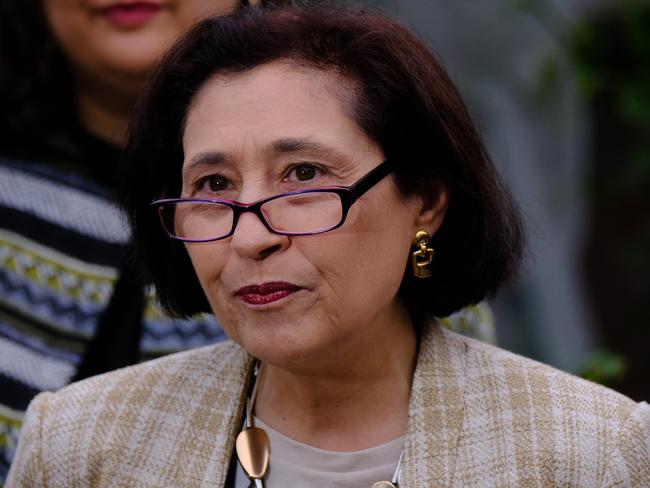Victorians to miss out on electricity bill credits in energy rebate cut
Hundreds of thousands of Victorian households with solar panels will miss out on generous feed-in tariffs after a proposed slashing of energy rebates.
Victoria
Don't miss out on the headlines from Victoria. Followed categories will be added to My News.
Hundreds of thousands of Victorian households with rooftop solar will miss out on electricity bill credits after a proposed slashing of a solar energy rebate.
A draft decision by the Essential Services Commission would slash the minimum “feed-in tariff” – which allows customers to sell their excess solar electricity back into the grid – from 3.3 cents per kilowatt hour to just 0.04 cents per kilowatt hour in the 2025-26 financial year.
The ESC is an independent body but opposition energy spokesman David Davis said Labor’s “chaotic” policy making had left people short-changed.
“The decision was announced today by the ESC with a short period for comment but will likely see the flat feed-in tariff fall by 99 per cent, to virtually nothing,” Mr Davis said.

“Such is the disorder and chaos in the Victorian energy market after 10 years of Labor that these chaotic decisions to slash feed-in fees will pull support from people who in good faith had invested in solar rooftop systems.”
Minister for Energy Lily d’Ambrosio said the reduction in feed-in tariffs reflected a growing supply of solar energy.
“The huge uptake of solar in Victoria has helped push daytime wholesale prices to historic lows – meaning lower power bills for everyone,” Ms d’Ambrosio said.
Victorians could continue to access solar savings through the government’s Solar Homes program with a 15 per cent increase in applications for solar panel rebates last financial year, she added.

Essential Services Commission chairperson Gerard Brody said the pricing methodology had not changed for many years.
“The lower feed-in tariffs reflect the widespread uptake and success of solar panels in the last few years, as Victorians have heeded calls to reduce carbon emissions and industry has increased renewable energy generation,’’ he said.
Although the ESC has proposed slashing feed-in tariffs, the Victorian government has safeguards in place to prevent customers being charged to feed-in excess solar energy during peak supply periods, the Herald Sun understands.

In New South Wales, retailers can impose export charges on solar users who export large amounts of energy into the electricity network during times when energy is not needed.
Although the proposed move by the ESC will all but remove a lever for solar households to claim money back, it won’t necessarily lead to higher bills.
Gavin Dufty, St Vincent de Paul’s national director of energy policy, said the proposed tariff fall represented the value that solar was offering to the grid, especially between 10am and 4pm when electricity supply in Victoria was plentiful.
“For households, if they use their own solar through self-consumption, there are still significant savings to be made because they avoid paying retailers in the order of 30c a kilowatt hour,’’ he said.
Most consumers in Victoria currently receive feed-in tariffs of about 5c a kilowatt hour.
The state government launched the solar premium feed-in tariff scheme in 2009, offering a generous 60c a KwH to compensate for the high cost of solar system installation at the time.
The tariffs have slowly fallen and the scheme officially ended last November.
Consultation on the ESC’s draft decision, via the Engage Victoria website, will close on January 31.


